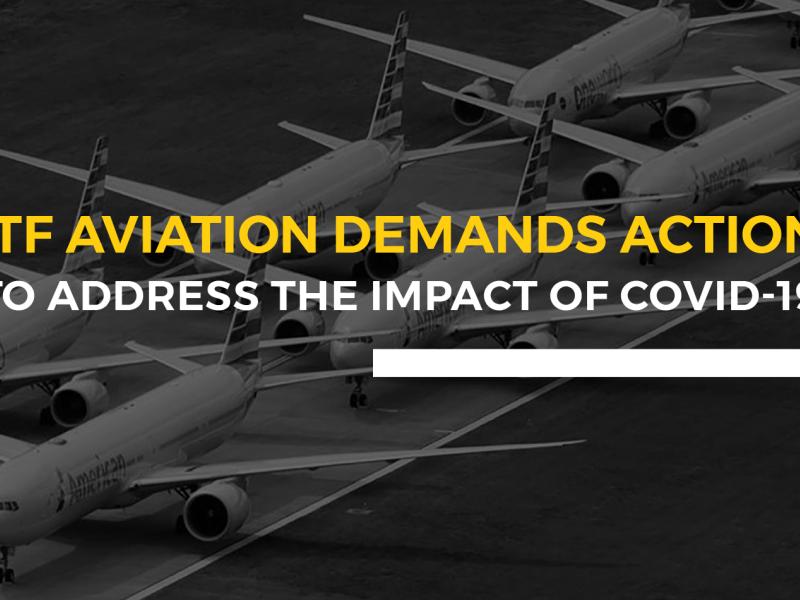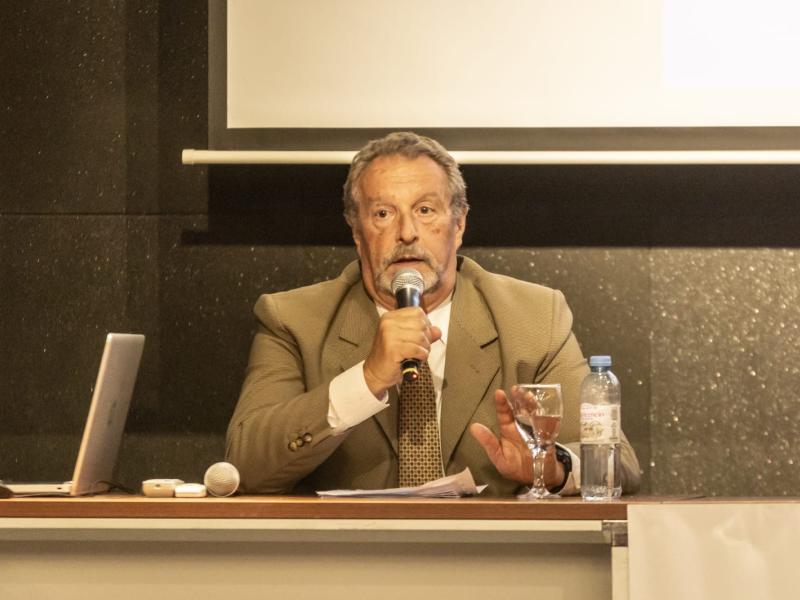Aviation is fighting for its survival during the Covid-19 pandemic. It cannot win this fight on its own. We must make bold decisions today that will define the future of the industry and the lives of millions of passengers, aviation workers and our communities.
Today, the ITF is making ten demands to both government and employers to save the aviation industry and help rebuild our global economy and society.
The collapse of aviation would radically disrupt the rebuilding of the global economy and society once the pandemic ends. Millions in the aviation supply chain would lose their jobs. The way we travel and move many goods would have to fundamentally change, placing unprecedented demands on other transport modes that are already struggling to move goods and passengers. Allowing the industry to fail would deepen the irreversible damage Covid-19 has inflicted upon our global economy.
We need bold decisions from policy makers that extend much further than other relief packages offered to the industry in time of crisis. The situation the aviation industry is facing is unprecedented and therefore support cannot be benchmarked against previous challenges. Since the crisis began to develop, we have seen passenger numbers fall by 49% compared with 2019 (IATA). This figure is continuing to grow as the pandemic spreads from region to region, health concerns become greater and countries across the globe begin to shut their borders.
The crisis is not only eroding confidence in airlines, it’s also impacting workers in the sectors that provide supporting services, resulting in a multiplier effect of job losses across the supply chain.
Our concerns go beyond short term financial security; a failure to secure adequate investment for airlines in the long term will have an impact on the battle against climate change. Investment in new fleets is vital to ensure the continued growth of aviation whilst making its carbon footprint sustainable.
Airlines have expensive operational costs, so any recovery package will cost billions depending on the length and scale of the pandemic. Although these huge numbers may seem frightening to policy makers initially, they are a sound investment in our future if delivered with the right mechanisms in place.
Aviation has a good history of recovering from economic shocks and crisis. Although the industry is struggling now, future growth could be up to 20% in certain regions. However, the aviation industry is dependent on long-term planning and coordination. Whether it’s investment in a skills programme to train future pilots and air traffic controllers, working with aircraft manufacturers in the development of newer more efficient aircraft, or working with governments of major infrastructure programmes, these investments in the future can take a decade to plan and deliver.
Following 11 September 2001, which unfolded into a crisis for the aviation industry, many of the recovery packages put in place were contingent on the erosion of terms and conditions for workers and further privatisation of the industry. This strategy and approach led to unfair competition in the market and shortages of workers in critical areas, such as pilots and technicians, with demand exceeding supply.
This approach and these measures did see the airline industry recover but terms and conditions for some employees have never returned to their previous level despite airlines and service providers becoming profitable.
We need an alternative and radical plan that builds the type of aviation industry we all want to see in the future. One that safely meets our needs, invests in the best and most modern equipment to reduce environmental impacts, provides good jobs and stability for workers, and ensures affordable prices for consumers.




